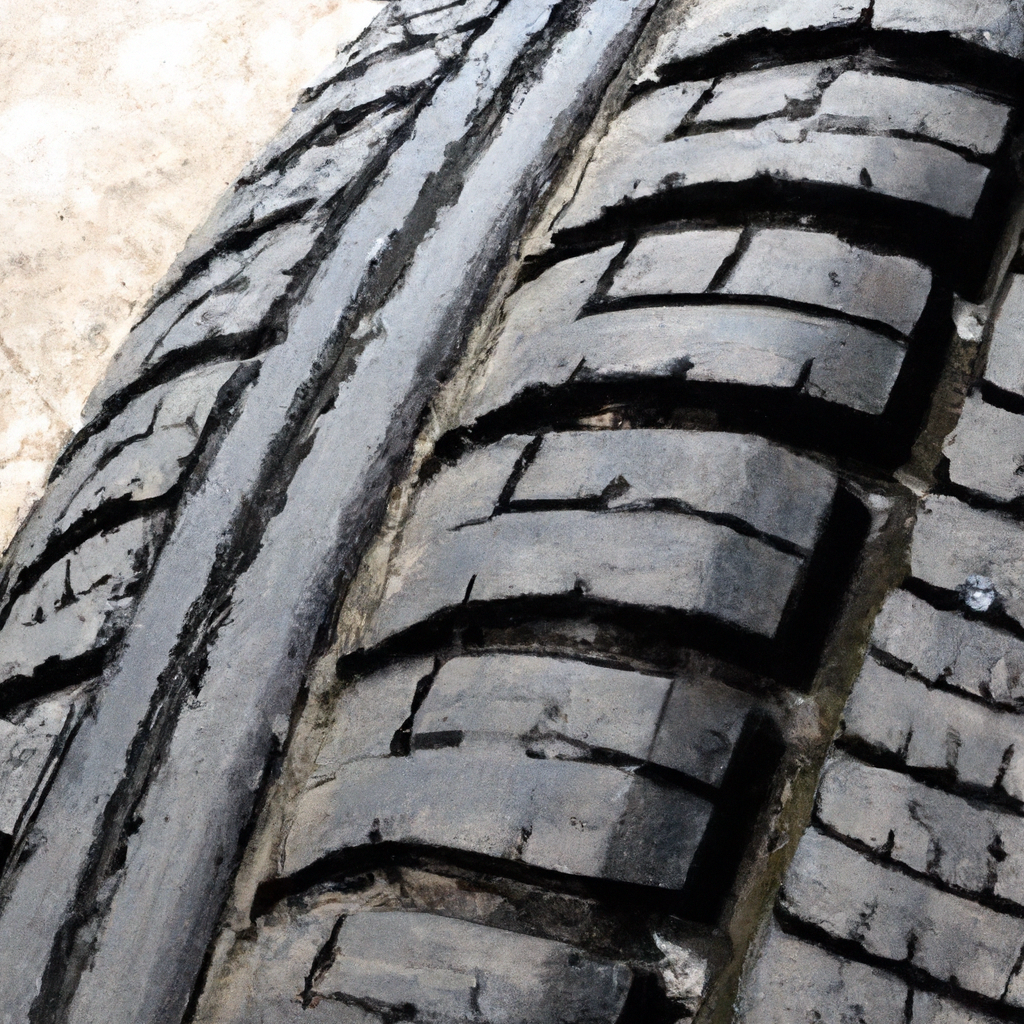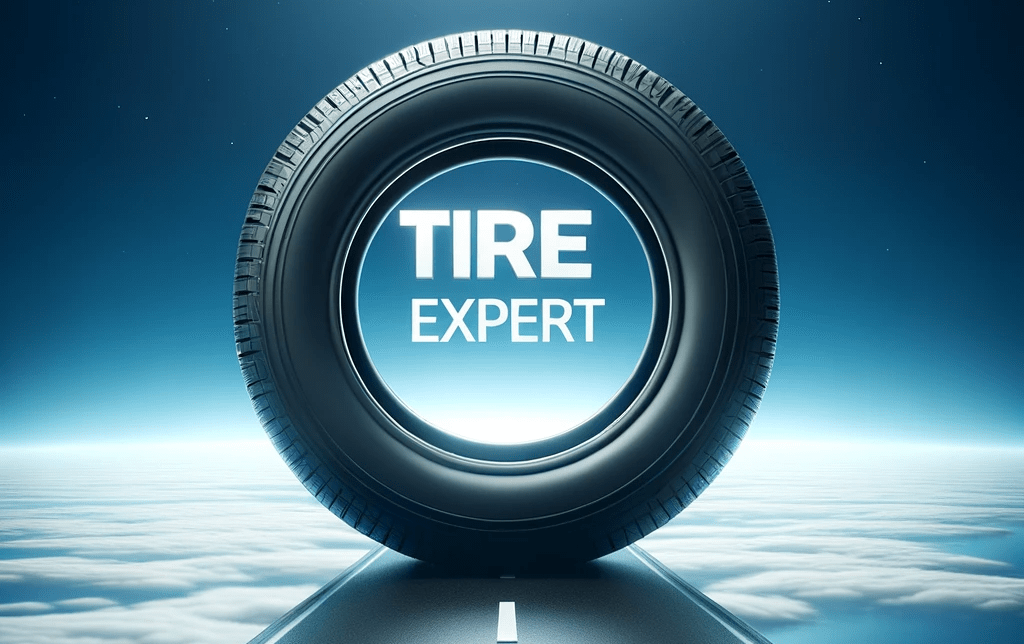Are you tired of constantly checking your tire pressure and dealing with the hassle of refilling them? If so, you may want to consider nitrogen-filled tires as a potential solution. Nitrogen has been gaining popularity as an alternative to regular compressed air, thanks to its ability to maintain tire pressure for longer periods of time. In this article, we will explore whether nitrogen-filled tires are really worth considering and if they can provide any significant benefits for your vehicle.

Benefits of Nitrogen-filled Tires
Improved Tire Pressure Retention
One of the main benefits of using nitrogen-filled tires is improved tire pressure retention. Unlike regular air, nitrogen is less prone to leakage through tire walls or rims, which means that the tires maintain their optimal pressure for a longer period of time. This is especially beneficial for those who do not regularly check their tire pressure or for those who live in extreme weather conditions where tire pressure tends to fluctuate more frequently. By keeping the tires properly inflated, nitrogen-filled tires can enhance the overall performance and safety of your vehicle.
Reduced Tire Oxidation and Aging
Another advantage of nitrogen-filled tires is the reduction in tire oxidation and aging. Oxygen in regular air causes the sidewalls and inner linings of the tires to degrade over time. This can lead to cracks, brittleness, and loss of structural integrity, which can be dangerous while driving. Nitrogen, on the other hand, is chemically inert and does not react with the tire materials, minimizing the oxidation process and slowing down the aging of the tires. By using nitrogen-filled tires, you can prolong the lifespan of your tires and ensure they remain in good condition for a longer period.
Enhanced Fuel Efficiency
Improving fuel efficiency is a concern for many drivers, and nitrogen-filled tires can contribute to this goal. Properly inflated tires reduce rolling resistance, which means that the engine has to work less to propel the vehicle forward. Nitrogen-filled tires tend to maintain their optimal pressure for a longer period of time, resulting in reduced rolling resistance and improved fuel efficiency. This can save you money in the long run by reducing your trips to the gas station and minimizing fuel consumption.
Increased Tire Lifespan
In addition to the benefits mentioned, nitrogen-filled tires also have the potential to increase the overall lifespan of your tires. By maintaining consistent pressure and minimizing oxidation and aging, nitrogen-filled tires experience less wear and tear compared to regular air-filled tires. This means that you can enjoy longer-lasting tires, saving you money on frequent replacements. Additionally, increased tire lifespan also helps reduce waste and is more environmentally friendly.
Potential Drawbacks of Nitrogen-filled Tires
Limited Availability and Accessibility
One of the potential drawbacks of nitrogen-filled tires is the limited availability and accessibility of nitrogen. While many tire shops and service centers now offer nitrogen filling services, it is not as widespread as regular air filling. This can pose a challenge if you find yourself in a situation where you need to top up your tire pressure but cannot find a nitrogen filling station nearby.
Cost of Nitrogen Service
Another consideration is the cost associated with nitrogen filling services. While the actual cost may vary depending on the location and service provider, it is generally more expensive than filling your tires with regular air. This higher cost is due to the additional equipment and processes required to extract and purify nitrogen. Therefore, it’s important to consider your budget and weigh the benefits against the extra expense.
Minimal Performance Improvements
While nitrogen-filled tires offer numerous benefits, it’s important to note that some of these improvements may be minimal or negligible in everyday driving situations. The improved tire pressure retention and reduced oxidation may be more noticeable in extreme weather conditions or for vehicles that experience heavy usage, such as commercial trucks or race cars. For regular passenger vehicles and typical driving conditions, the performance improvements may not be as significant.
Maintenance Challenges
Maintaining nitrogen-filled tires can also present some challenges. For example, if you experience a tire puncture or damage and need to repair or replace it, finding a service provider who can handle nitrogen-filled tires may be more difficult compared to regular air-filled tires. Additionally, if you need to top up the pressure in your tires, you will need access to a nitrogen filling station or service center, which may not always be readily available.
Effectiveness of Nitrogen-filled Tires
Scientific Studies and Research
Scientific studies and research have been conducted to determine the effectiveness of nitrogen-filled tires. These studies often compare nitrogen-filled tires with regular air-filled tires in terms of tire pressure retention, fuel efficiency, and tire lifespan. While the results vary, several studies have shown that nitrogen-filled tires tend to retain their tire pressure better and have improved fuel efficiency compared to regular air-filled tires. However, it’s important to consider that these studies may have limitations and that real-world performance may vary.
Customer Reviews and Testimonials
Many drivers who have opted for nitrogen-filled tires have reported positive experiences and benefits. Customer reviews and testimonials often highlight the improved tire pressure retention, increased fuel efficiency, and longer tire lifespan that they have observed after switching to nitrogen-filled tires. Reading reviews and testimonials from other drivers can give you a better understanding of the potential benefits and drawbacks of nitrogen-filled tires and help you make a more informed decision.
Industry Expert Opinions
Industry experts, including tire manufacturers and automotive professionals, also provide insights into the effectiveness of nitrogen-filled tires. While opinions may vary, many experts affirm the benefits of using nitrogen-filled tires, particularly in certain driving conditions or for vehicles that see heavy usage. These experts often recommend nitrogen for its ability to mitigate pressure loss, reduce oxidation, and increase tire longevity. However, it’s important to consult multiple sources and consider the expertise of those providing their opinions.
Proper Nitrogen Tire Maintenance
Regular Pressure Checks and Adjustments
To ensure the optimal performance of nitrogen-filled tires, regular pressure checks and adjustments are important. While nitrogen is known for its improved pressure retention, it can still experience gradual pressure loss over time. It is recommended to check the tire pressure at least once a month and adjust it as needed. This can be done at a nitrogen filling station or service center equipped with the necessary tools to measure and adjust tire pressure.
Managing Tire Damage and Punctures
In the event of a tire puncture or damage, proper management is essential to ensure the continued performance of nitrogen-filled tires. If the damage is minor, such as a nail or small puncture, it may be possible to repair the tire without compromising the nitrogen fill. However, it is advisable to consult a professional tire technician who is experienced in handling nitrogen-filled tires to assess the situation and provide appropriate solutions. In some cases, the tire may need to be replaced if the damage is severe.
Compatibility with Tire Repair Kits
When considering nitrogen-filled tires, it is important to be aware of their compatibility with tire repair kits. Some tire repair kits utilize chemicals or adhesives that may not be compatible with the nitrogen-filled tires and could potentially compromise the integrity of the tire. It is advisable to consult the tire manufacturer or a professional tire technician to determine which repair kits are safe to use with nitrogen-filled tires, or if alternative repair methods need to be employed.

Factors to Consider Before Opting for Nitrogen-filled Tires
Driving Conditions and Habits
Before deciding to switch to nitrogen-filled tires, it is important to consider your driving conditions and habits. If you frequently drive in extreme weather conditions or experience significant temperature fluctuations, the improved tire pressure retention of nitrogen-filled tires may be more beneficial. Similarly, if you have a heavy workload or carry heavy loads in your vehicle, the increased tire lifespan and improved performance of nitrogen-filled tires may be advantageous. Assessing your specific driving conditions and habits can help determine if the benefits of nitrogen-filled tires outweigh the potential drawbacks.
Vehicle Type and Usage
The type of vehicle and its intended usage should also be taken into account when considering nitrogen-filled tires. Commercial vehicles, such as trucks or delivery vans, may benefit more from the enhanced fuel efficiency and increased tire lifespan of nitrogen-filled tires due to their heavy usage. On the other hand, if you primarily use your vehicle for short commutes or occasional leisure drives, the performance improvements of nitrogen-filled tires may not be as noticeable. Evaluating the specific requirements and demands of your vehicle can help you make a more informed decision.
Budget and Cost Analysis
Lastly, it is important to assess your budget and conduct a cost analysis before opting for nitrogen-filled tires. While nitrogen filling services may be more expensive upfront, it is necessary to consider the long-term cost savings and potential benefits. Evaluate the average lifespan of your tires, potential fuel savings, and the cost of nitrogen top-ups or maintenance compared to regular air-filled tires. This comprehensive cost analysis can help determine if the initial investment in nitrogen-filled tires aligns with your budget and long-term financial goals.
Comparison with Regular Air-filled Tires
Differences in Tire Pressure Retention
One of the key differences between nitrogen-filled tires and regular air-filled tires is in their tire pressure retention capabilities. Nitrogen-filled tires are known to retain pressure better over time due to the larger size of nitrogen molecules and its chemical properties. Regular air, on the other hand, contains smaller oxygen molecules that are more prone to escaping through tire walls and rims, leading to gradual pressure loss. If maintaining optimal tire pressure is a priority for you, nitrogen-filled tires may be a suitable option.
Effects on Tire Performance
In terms of tire performance, nitrogen-filled tires and regular air-filled tires may exhibit subtle differences. Nitrogen-filled tires, with their improved pressure retention and reduced oxidation, may offer a slightly smoother ride, better handling, and improved grip, especially in extreme driving conditions. However, the performance enhancements may not be significantly noticeable for everyday driving situations. Regular air-filled tires, when properly maintained, can still provide satisfactory performance for most drivers.
Long-term Cost and Maintenance Comparison
When comparing the long-term cost and maintenance of nitrogen-filled tires to regular air-filled tires, several factors need to be considered. Nitrogen-filled tires, with their better pressure retention, may require fewer top-ups and adjustments, potentially saving you time and money in the long run. They may also have a longer lifespan due to reduced oxidation. However, the initial cost of nitrogen filling services and the availability of nitrogen filling stations need to be factored in. Regular air-filled tires, while requiring more frequent pressure checks and adjustments, may be more cost-effective in terms of upfront expenses and accessibility.

Myths and Misconceptions about Nitrogen-filled Tires
Effectiveness in Extreme Temperatures
There is a common misconception that nitrogen-filled tires are not effective in extreme temperatures. Some believe that nitrogen expands and contracts at a different rate compared to regular air, leading to unpredictable tire pressure changes in extreme cold or hot weather. However, scientific studies have shown that nitrogen-filled tires still provide improved pressure retention in extreme temperatures and are less affected by temperature fluctuations compared to regular air-filled tires. While tire pressure may still fluctuate to some extent, it is important to regularly monitor and adjust tire pressure as necessary, regardless of the type of filling.
Compatibility with TPMS Sensors
Another common myth is that nitrogen-filled tires are incompatible with Tire Pressure Monitoring System (TPMS) sensors. TPMS sensors are designed to monitor the tire pressure and alert the driver to any significant deviations. Nitrogen-filled tires do not hinder the functionality of TPMS sensors and the sensors can still accurately measure tire pressure regardless of the filling. It is essential to ensure that the TPMS sensors are properly calibrated and that the tire technician is aware that the tires are filled with nitrogen to avoid any confusion or potential inaccuracies.
Nitrogen Leakage and Top-Up Frequency
Some people assume that nitrogen-filled tires never lose pressure and do not require any top-ups. While nitrogen is less prone to leakage compared to regular air, it is not entirely leak-proof. Over time, nitrogen-filled tires can also experience gradual pressure loss due to factors such as temperature fluctuations and small leaks. Therefore, regular pressure checks and adjustments are still necessary to maintain the optimal performance of nitrogen-filled tires. It is recommended to check the tire pressure at least once a month or as advised by your tire technician.
Industry Standards and Guidelines
Recommended Nitrogen Purity Levels
To ensure the effectiveness and benefits of nitrogen-filled tires, industry standards and guidelines recommend a minimum nitrogen purity level of 95%. This means that the nitrogen gas used for filling should contain at least 95% nitrogen and a maximum of 5% impurities, such as oxygen and other gases. A higher nitrogen purity level helps minimize oxidation and ensures optimal tire pressure retention. When opting for nitrogen filling services, it is important to confirm that the purity level meets the recommended standards.
Maintenance Intervals and Nitrogen Top-Up
Maintenance intervals and nitrogen top-up requirements may vary depending on various factors, including driving conditions, tire usage, and the age of the tires. However, as a general guideline, it is recommended to have the tire pressure checked and adjusted at least once a month or before embarking on long trips. This helps maintain the optimal pressure for improved performance and safety. In terms of nitrogen top-up frequency, it is advisable to consult with the tire manufacturer or a professional tire technician to determine the appropriate schedule based on your specific circumstances.
Certifications and Training for Nitrogen Service Providers
Nitrogen filling services should be carried out by trained professionals who are knowledgeable about the process and understand the specific requirements of nitrogen-filled tires. The industry provides certifications and training programs for tire technicians who specialize in nitrogen filling. When seeking nitrogen filling services, it is recommended to choose a trusted service provider with certified technicians who have the necessary expertise and equipment to perform the task correctly and safely.

Conclusion
In conclusion, nitrogen-filled tires offer several benefits that can enhance the overall performance and longevity of your tires. Improved tire pressure retention, reduced oxidation, increased fuel efficiency, and longer tire lifespan are some of the advantages that nitrogen-filled tires provide. However, it’s important to consider the potential drawbacks, such as limited availability, higher cost, and minimal performance improvements in certain driving situations. Conducting thorough research, considering your specific driving conditions and habits, and evaluating the long-term cost and maintenance aspects can help determine if nitrogen-filled tires are worth considering for your vehicle. Always consult with industry experts, read customer reviews, and seek advice from tire professionals to make an informed decision. As tire technology continues to evolve, advancements in nitrogen filling techniques and improved tire characteristics may further enhance the benefits and effectiveness of nitrogen-filled tires.

